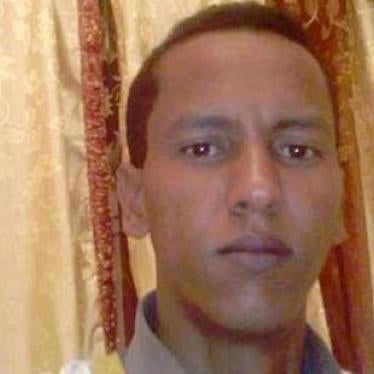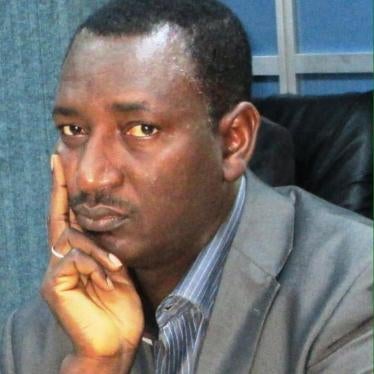President Mohamed Ould Ghazouani
Islamic Republic of Mauritania
Nouakchott, Mauritania
Re: Women’s Rights and Gender-based Violence
Dear President Ould Ghazouani,
Human Rights Watch is an international nongovernmental organization that documents human rights violations and advocates for change in over 90 countries. Over the past two years, we have engaged constructively with the Mauritanian government over key issues that included women’s rights and freedom of speech. We met with the ministers of justice, interior, social affairs, childhood and family and with the president of the national human rights commission to discuss our findings and recommendations.
We are writing at the beginning of your presidency to urge you to take decisive steps to improve women’s rights and to tackle the prevalence of gender-based violence nationally.
In 2018, Human Rights Watch in consultation with Mauritanian NGOs conducted extensive research on gender-based violence and published its findings in a report entitled “They Told Me to Keep Quiet: Obstacles to Justice and Remedy for Sexual Assault Survivors in Mauritania,” issued on September 5, 2018. We found that:
- Taboo, societal pressure, and stigma surrounding gender-based violence deters women and girls who are affected from breaking the silence;
- Women and girls who report rape incidents to the authorities risk prosecution for engaging in sexual relations outside marriage (also known as zina);
- Survivors must navigate a system that discourages them from making complaints and provides inadequate victim-support services; and
- Civil society organizations, that have limited means, too often inadequately fill in the existing protection gap throughout the country that should be filled by the government.
Human Rights Watch has shared its findings with the Mauritanian government and urged it to:
- Cease prosecutions and detentions for so-called zina cases and decriminalize the offense;
- Adopt a law on gender-based violence in line with international standards; and
- Allocate adequate funding to create specialized prosecutorial units, implement periodic gender-responsive trainings of law-enforcement officials, ensure greater access to medical care and forensic examinations for survivors, open shelters throughout the country equipped to house and provide direct support services to survivors, and increase financial support to civil society organizations currently supporting survivors.
In May 2019, Human Rights Watch researchers returned to Nouakchott to interview one of the survivors and activists whose experience and expertise informed our research for the report. We met again with Rouhiya (name changed to protect her identity), a young woman who was sexually abused repeatedly by her father and was pregnant as a result of rape by him at the time of her initial interview. Absent shelters in Nouakchott and absent government support, Rouhiya remains forced to live in her abusive home, taking care of her newborn, with a father who continues to be physically violent. Women’s rights activists we spoke to continue to deplore the lack of government action and lawmakers’ refusal to adopt a gender-based violence law that would provide a framework for accountability and protection, and institutionalize support services for survivors, such as Rouhiya.
Human Rights Watch is deeply concerned that the National Assembly rejected the draft gender-based violence law in December 2018, for the second time. The draft law, supported by the ministry of justice and approved by the Senate in 2016, included key input from civil society leaders, aimed at creating a new protection framework for survivors. It especially provided key definitions and criminal sentences for rape and sexual harassment, authorized civil society organizations to bring cases on behalf of survivors, allowed judges to issue restraining orders against alleged perpetrators and obligated the government to create shelters with short and long-term accommodation options. Despite these positive features of the draft law, we regret that the bill does not repeal provisions of the Penal Code criminalizing consensual sexual relations, defines rape and sexual assault too narrowly and maintains references in the penal code to forms of punishments amounting to cruel, inhumane and degrading treatment, such as death by stoning or flogging. While your newly formed government defines Mauritania’s new policy orientations, we urge you to demonstrate your commitment to women’s rights by making such law reform a priority.
We would welcome a meeting with you and with senior members of your administration to further discuss our recommendations on women’s rights and more specifically on the draft gender-based violence law and remain at your disposal for any questions or clarifications. We would be grateful to hear back from you concerning the availability of yourself and of other pertinent officials to meet with a Human Rights Watch delegation.
A response to our request can be directed to my colleague, XXXXXXX, Middle East and North Africa coordinator, via email at XXXXXXX.
Sincerely,
Sarah Leah Whitson
Executive Director
Middle East and North Africa Division
Human Rights Watch








